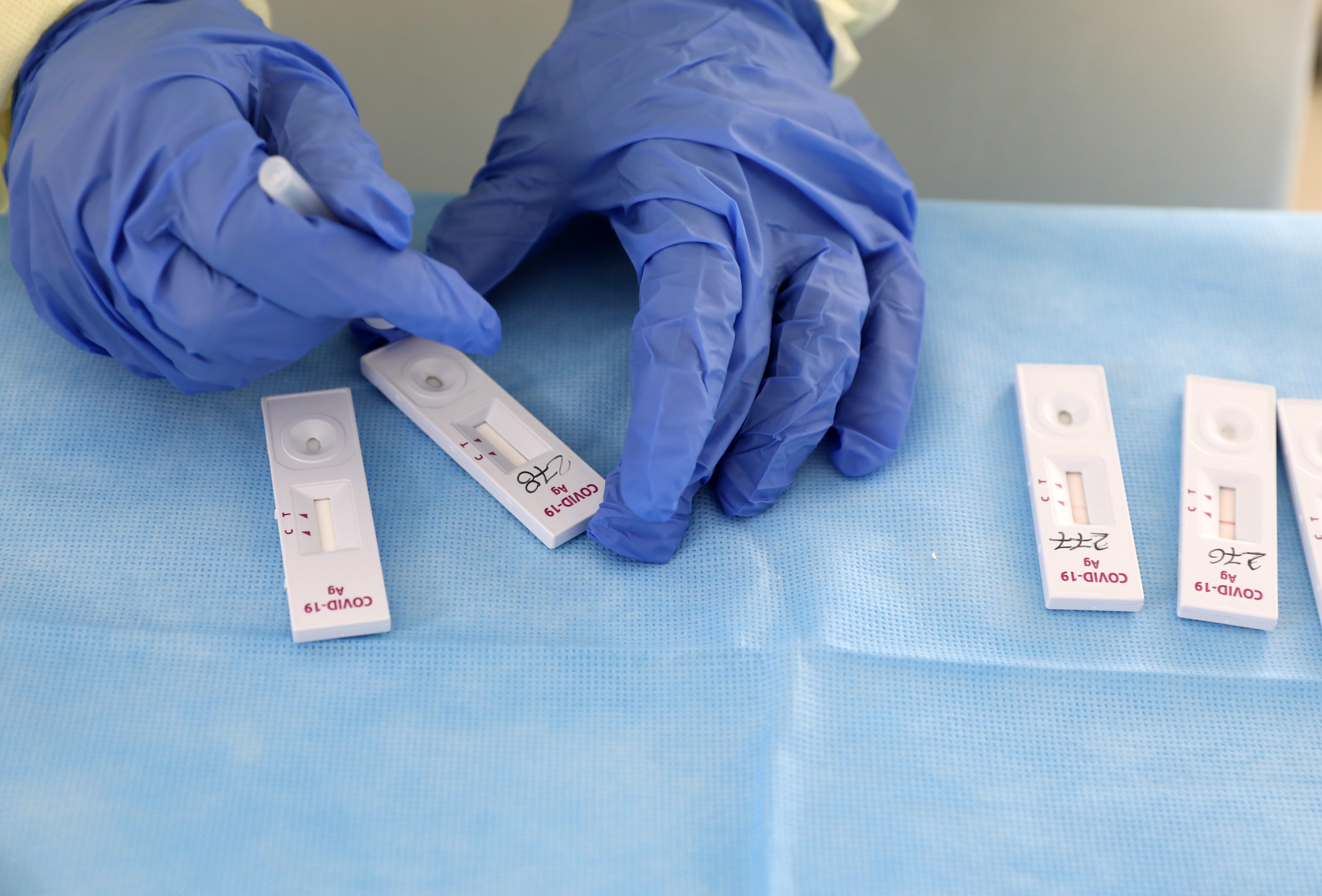Cyprus continues to top Europe’s list of EU countries with the most tests per 100,000 population, the Health Ministry declared on Monday.
According to the ministry, Cyprus carried out a daily average of 24,196 tests per 100,000 last week, of which the majority of the 229,743 tests were rapid antigen tests.
Second behind Cyprus was Austria with 16,862 tests per 100,000, followed by Denmark with 14,481.
Some 229,743 rapid tests conducted between February 22-28 discovered another 809 new COVID-19 cases, with a positivity rate of 0.35%.
The Health Ministry said mass free testing is part of its three-pillar strategy for managing the pandemic: ‘tests, surveillance, vaccinations’.
Like other people returning to work, school teaching staff and pupils physically attending class must undergo rapid antigen testing every week.
First- and second-year Lyceum students went back on Monday, as did those in technical schools and private school equivalents.
The Ministry of Education announced on Sunday that Gymnasium students would return to their classes on Tuesday, March 16, later than earlier planned (March 8).
Presenting the test results will be mandatory from March 8, and parents are asked to permit their children to take the test.
To ensure health protocols are observed, the ministry said 1,160 businesses and 4,531 employees were checked last week, with no fines issued.
The Health Ministry called for vigilance and for people to continue getting tested.
“The epidemiological situation, although improved, remains at a crucial point which can easily worsen.”
Mass testing and the early detection of cases reduce the spread of the virus in the community.
“It contributes to controlling the more aggressive transmission of the virus caused by its mutations that have now been detected in the EU Member States, including Cyprus, causing great concern at pan-European level,” said the ministry.
It said rapid, and real-time diagnosis helps the immediate tracking of close contacts.
Having detected outbreaks in specific areas of the country, but also workplaces, the Health Ministry, in the last two weeks, has extended the tracking of cases to secondary contacts to detect cases faster and prevent COVID-19 spreading.










